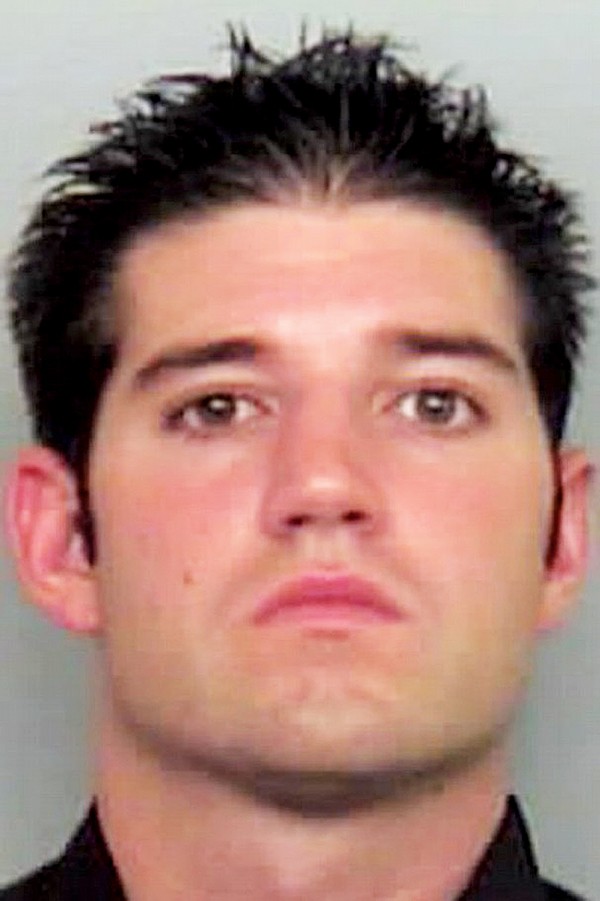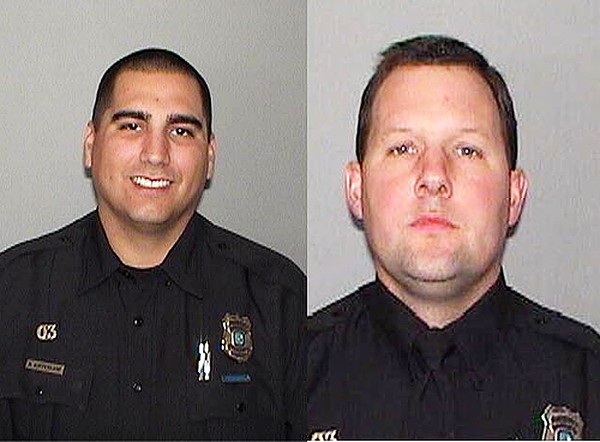On the night of January 11, 2013, 67-year-old Cordova resident Donald Moore ran for cover in his bedroom as he heard people forcing their way into his home.
Minutes before, a member of the Memphis Police Department’s (MPD) TACT Unit busted out a window of Moore’s home, throwing a flash-bang grenade inside. Other officers entered the back of his house, deploying additional grenades. Fearing for his life, Moore dialed 911.

Phillip Penny
“He is on the phone with 911 when Officer [Phillip] Penny shoots him,” said attorney Howard Manis. “He shot him with an M-4 Rifle three times at close range.”
Bullets from Penny’s assault rifle entered Moore’s neck, torso, and right shoulder, traveling into his chest and mortally wounding him. Penny would later allege that Moore pointed a gun at him and several Memphis Animal Services employees who were at his home to serve an animal cruelty warrant.
On behalf of the Moore family, Manis, along with attorney Jeffrey Rosenblum, has filed a $3 million wrongful death lawsuit against Penny, the MPD and its director Toney Armstrong, TACT Unit Commander Charles Morris, and the city of Memphis.
A week after Moore was shot and killed, 24-year-old Steven Askew fell asleep in his car at the Windsor Place Apartments on January 17th while waiting for his girlfriend to get off work.

Ned Aufdenkamp and Matthew Dyess
Two MPD officers, Ned Aufdenkamp and Matthew Dyess, noticed Askew asleep and, upon suspicion, approached the vehicle. The officers stated that as they got to the car’s window, they noticed a handgun in between Askew’s legs.
The officers tapped on the window while shining flashlights into the vehicle, awaking Askew. The officers stated they told Askew to raise his hands. Instead of complying with the requests, they allege Askew threw some “gang signs” before arming himself with the handgun and pointing it at them. The officers reacted by discharging their weapons, leaving Askew’s car riddled with bullet holes, nine of which fatally entered his back, arms, and the back of his neck.
Manis and Rosenblum are representing the Askew family, which has filed a wrongful death lawsuit amounting to $3 million in damages as well.
“We need to focus on what they did and their explanations and then determine whether or not those were part of a policy procedure or their deviations from that,” Manis said.
Officers Aufdenkamp, Dyess, and Penny were relieved of duty with pay during the investigation into their shootings. No criminal charges were filed against the officers, and the MPD’s homicide bureau declared both shootings justifiable. All officers remain employed with the department.
A month before the fatal shootings of Moore and Askew, MPD officer Martoiya Lang was murdered as she served a search warrant on December 14, 2012.
Manis questions whether there was additional training and counseling provided to circumvent problems that could arise as a result of the MPD being on “heightened alert” after Lang’s death.
In addition to providing both the Moore and Askew families with some relief for their loss, Manis said he hopes the lawsuits spark a change in how the MPD trains its officers on the appropriate timing to exhibit excessive force.
“These are two people who died at the hands of those who have been sworn to serve and protect, and neither were committing crimes,” Manis said. “One was in his home and the other was in his car, and now they’re dead. And they were killed as a direct result of police officer conduct.”
At press time, Manis was still awaiting a response from the defendants named in the lawsuits. The MPD did not respond to the Flyer‘s request for comment.